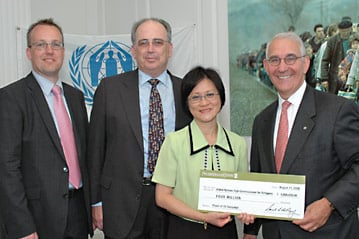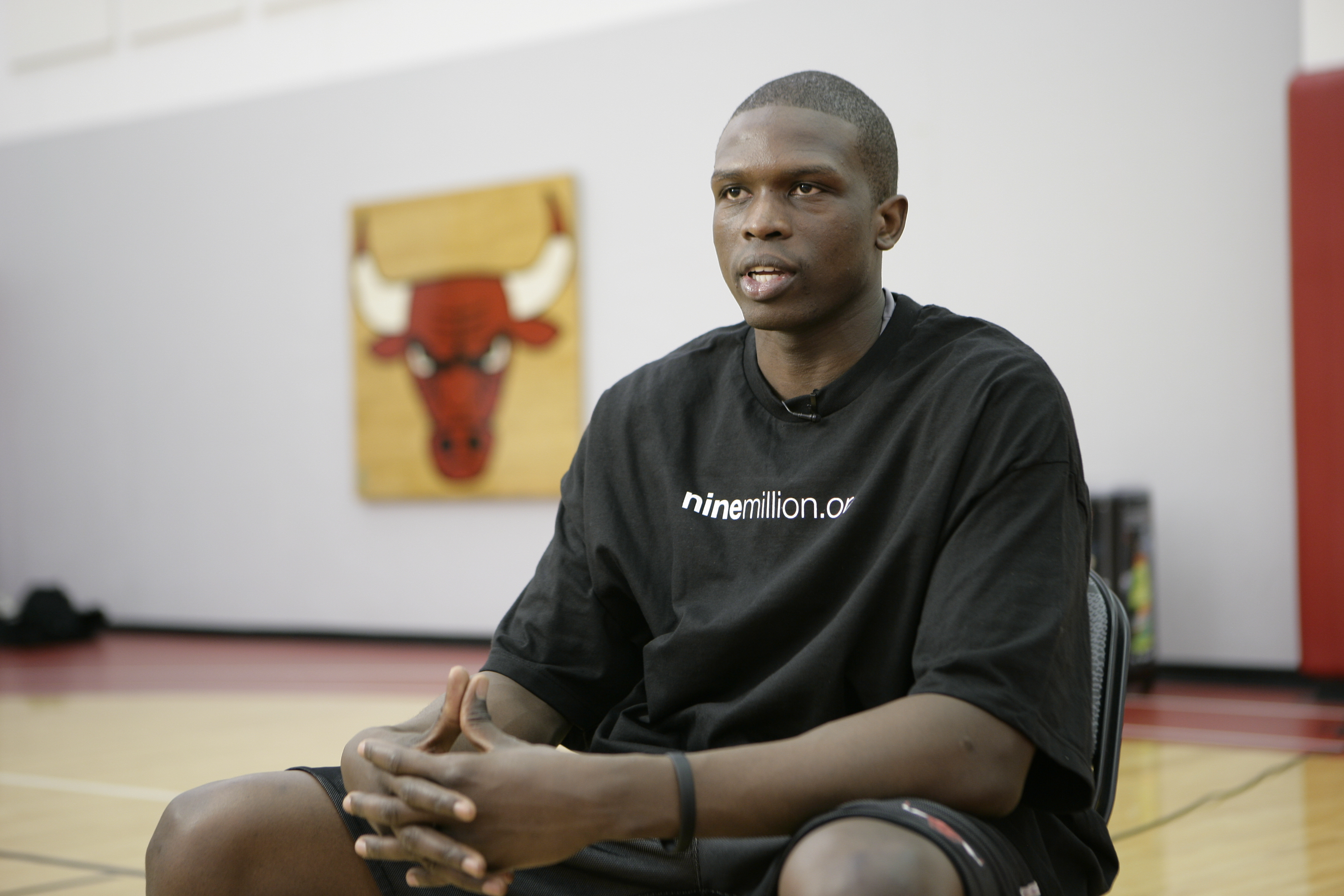UNHCR helps refugees tell their stories through Pangea Day
UNHCR helps refugees tell their stories through Pangea Day

Note: This story was edited on 9 May 2008 to add the last two paragraphs.
GENEVA, May 8 (UNHCR) - Refugees from some of the world's biggest and most remote displacement crises will be telling their own stories this weekend through video they shot using mobile phone technology as part of the inaugural Pangea Day global film event.
Pangea Day, a non-profit project created by documentary film maker Jehane Noujaim, includes a four-hour live broadcast on Saturday, in which different films from many different cultures will be shown on television, live webcast and mobile phones to a worldwide audience.
The UN refugee agency was invited by the organizers to help arrange video content shot by refugees in several locations around the world. "Working with refugee communities on this project was a great experience," said Safak Pavey, a UNHCR public affairs officer involved in gathering the material. "Calling from all corners of the world, the refugees were excited to tell their stories and to discover a new medium of technology."
In association with Pangea Day and their project associate, Nokia, video mobile phones were distributed through UNHCR field staff to refugees in Afghanistan, Chad, Colombia, Democratic Republic of the Congo, Ecuador, Eritrea, India, Iran, Kenya, Malaysia, Serbia, Sweden, Switzerland, Sudan and the United States.
In addition to selections of the refugee-produced content from these locations, other films about UNHCR's work on behalf of more than 30 million uprooted people around the world will be among those featured when communities across the globe join in what Pangea Day organizers have termed the world's "first global campfire," aimed at giving an international voice to normally invisible stories.
The project is aimed at allowing an international audience to benefit from the potential that new technology brings in mass communication, including citizen journalism that creates and disseminates first-hand stories.
One of those who filmed for UNHCR was Zalmaï, a former Afghan refugee who is now one of the world's foremost photojournalists. He agreed to support the project while on a recent photography assignment in his native Afghanistan.
"As a photographer, I know the power of film and the impact it can have on lives," said Zalmaï, who has worked closely with UNHCR on several refugee projects. "The refugees were thrilled to have an opportunity to tell their story directly to people all over the world. And I think people worldwide will be moved when they see the compelling stories told by refugees in situations few outsiders ever get to witness. Even though many of them have lost everything, the courage, pride and hope of the refugees still shine through."
UNHCR Public Information Officer Hélène Caux worked on the project with Sudanese refugees in eastern Chad and found the experience very rewarding.
"I was amazed to see how eager the refugees were to learn how to use the Nokia phones and, most of all, how willing they were to tell their daily lives to outsiders," she said. "The Pangea Day project creates a strong bond between human being who have very different lives."
Delia Cohen, Pangea Day's executive director, said the partnership with UNHCR went to the core of Pangea Day's mission. "One of our primary goals is to foster a new generation of storytellers. By connecting Nokia with UNHCR, we've managed to give voice to some of the world's most vulnerable - and often less visible - people."
Nokia also welcomed the project. "Nokia is honoured to give international visibility to these normally unheard stories," said Tero Ojanperä, head of the company's entertainment and communities group.








